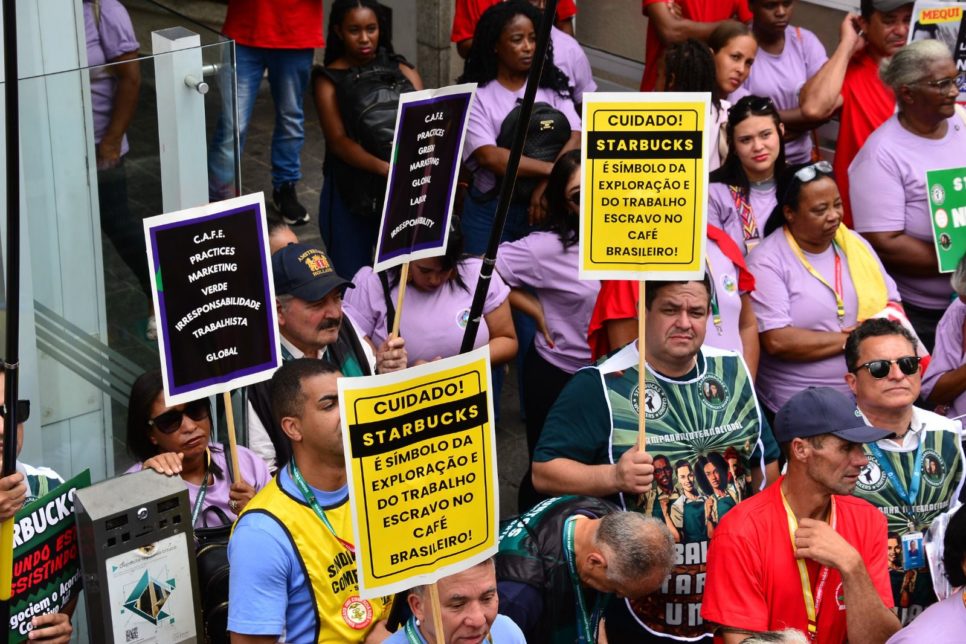Interview: security of defenders at risk
Global Witness releases report and warns about security of human rights and environmental defenders in Brazil

Brazil was the country where the most human rights and environmental defenders were killed in 2016. In all, there were 49 killings, according to the report “Defenders of the Earth” released on Thursday, July 13, by the British NGO Global Witness, which investigates and denounces human rights abuses and violations around the world. In 2015, the NGO also identified Brazil as the country with the most rural killings, with 50 registered cases.
According to the report, 200 killings were documented in 24 countries, an increase of nearly 10% compared to the previous year. The situation in Brazil is addressed in one chapter, which highlights the case of Nilce de Souza, leader of MAB (Movement of People Affected by Dams). Souza’s body was found in July 2016 at the bottom of the lake formed by the Jirau hydroelectric dam, on the banks of the Madeira River, with her hands and feet tied to a stone.
Read more
The document warns that the number of killings could be even higher, given that many go unreported as they happen mainly in rural areas. Nevertheless, 2016 was a year when land conflicts peaked and most of the killings in Brazil were related to the expansion of agribusiness or the defense of forests against illegal logging.
On July 4th, CBDDH (Brazilian Committee of Human Rights Defenders) published the report “Lives of struggle: criminalization and violence again human rights defenders in Brazil”, which also denounces threats and killings of activists. The report identifies Rondônia as the most dangerous Brazilian state, where 19 murders were recorded in 2016.
- Read the interview with Ben Leather, of the defenders of the earth and the environment campaign at Global Witness:
Conectas – How has the weakening of protection policies against human rights defenders in Brazil had a direct impact on the increase in the number of murders in the last year?
Ben Leather – The fact that Brazil is consistently the country with the highest number of murders of land and environmental defenders in the world, demonstrates that the national protection program for human rights defenders has never been properly implemented, particularly in remote regions and for rural and indigenous defenders. With the relegation of human rights policies under the Temer administration, this scenario can only get worse until the human rights ministry and the human rights defender protection program are given a greater priority.
According to the report, the logging industry is directly linked to 16 murders and the level of impunity is still high in Brazil. What strategy should the Brazilian government adopt to curb this type of crime?
Firstly, strengthen monitoring of this industry and guarantee sanctions against those who violate the laws which should regulate logging. Secondly, the FUNEI’s budget should be restored and then increased. Thirdly, the proposal to redraw the borders of indigenous lands should be scrapped. And finally, the government should guarantee protection of all those defenders working on issues related to logging, who are under threat.
How does Global Witness see the threats of alteration in the Brazilian environmental legislation, such as the bills that aim to alter the environmental licensing and the measures that reduce the units of conservation? How this changes can affect defenders
Any policy or action which makes it easier for companies to grab land and impact upon the environment, and decreases governmental oversight, is going to cause conflict. It will mean that more communities and more defenders will have to mobilise in order to demand their rights. And it means that more profit-thirsty companies and corrupt officials will seek to silence them when they speak out.
What role have private companies played in the conflicts that result in violence and deaths of human rights defenders and what measures should they take to help reverse the scenario?
Even if it is the State’s duty to protect defenders, companies and investors have a big part to play. International law obliges them to respect the rights of defenders, and there is an ethical and business case for them to support defenders and ensure they can carry out their activism safely. Nobody should be investing in the countries and sectors associated with attacks on defenders, until guarantees are made that they can be kept safe.






